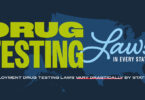aNewDomain — Getting a life in the current world might now be as important as securing your digital afterlife. It’s a strange concept, certainly, but one that we have to deal with realistically at this point. If you lost a loved one or if you’re worried your digital assets will be abused, it’s time to get that digital afterlife in order.
Digital Dust
 Right now there are more than 30 million accounts of deceased people on Facebook, and who knows how many defunct email addresses and profiles on the web. March 2015 marked four years since T.S, brother of Vered Shavit, was killed when hit by a car on March 2, 2011. In April 2011 his Yahoo email account was hacked into and spam emails were sent to his contacts. It wasn’t carried out by anyone with evil intent — the hacker did not know T was deceased.
Right now there are more than 30 million accounts of deceased people on Facebook, and who knows how many defunct email addresses and profiles on the web. March 2015 marked four years since T.S, brother of Vered Shavit, was killed when hit by a car on March 2, 2011. In April 2011 his Yahoo email account was hacked into and spam emails were sent to his contacts. It wasn’t carried out by anyone with evil intent — the hacker did not know T was deceased.
In the years since T.S death Vered saw that T.S Facebook profile got hundreds of friend requests. She believes Facebook’s algorithms might be suggesting him as a possible friend (an issue with its own implications), and she discovered that many are unaware of the way digital assets should and could be managed.
In order to make sense of this she created a blog, Digital Dust, in which she says:
We should be doing more. We should be aware that each and every one of us already has digital assets of tremendous value to the people who love us, and manage it. I get it, no one wants to think about a possible injury which will incur a memory loss, finding themselves locked out of everything they have in their computer and in the net, because they were relying only on their memory and no one else has the passwords and they’re not written anywhere. I also get it that no one wants to think about the possibility of themselves dying.”
Your legacy to the next generation and those near and dear to you needs to be what you want it to be. Maybe you should change those passwords since you broke up with your ex — actually, you should entrust passwords and accounts to someone you trust implicitly.
It’s no longer just your house, stocks and artifacts that need to be dealt with in the wake of your death. Today there’s your Twitter account, passwords to online banking — and what about your secret subscription to a gambling website, or perhaps an even more risqué site? Would you want your spouse, mother, son or daughter to find these?
You could spend a lot of money on companies that offer digital assets services, but if your family wants to do work AFTER death, Vered provides a practical guide. In one passage Vered highlights how important timing is:
- On Facebook, for instance, at any moment someone might turn his or her profile into a memorial profile (your consent isn’t required and you’ll find yourselves locked out of the account – even if you have a valid password). Therefore, the first thing I recommend you do is download a copy of the profile’s content (for “how to” scroll down, under “Facebook”).
- Some of the email service providers might terminate an account which hasn’t been used over a certain period of time, depending on their Terms of Use. Therefore I recommend that if you have the means to do so, go into the email account, just to create some activity and prolong the window during which you can make up your mind.
It’s a strange world, but today we need to ask ourselves: Who owns our data? How will that data be cared for after we pass? The infographic below informs the situation, and with Vered’s help you can get started.

Infographic courtesy of WebpageFX and The Digital Beyond
For aNewDomain, I’m David Michaelis.
First image: Drowning in Social Media via mkhmarketing via Flickr
Featured image: Afterlife by thebluecatz













